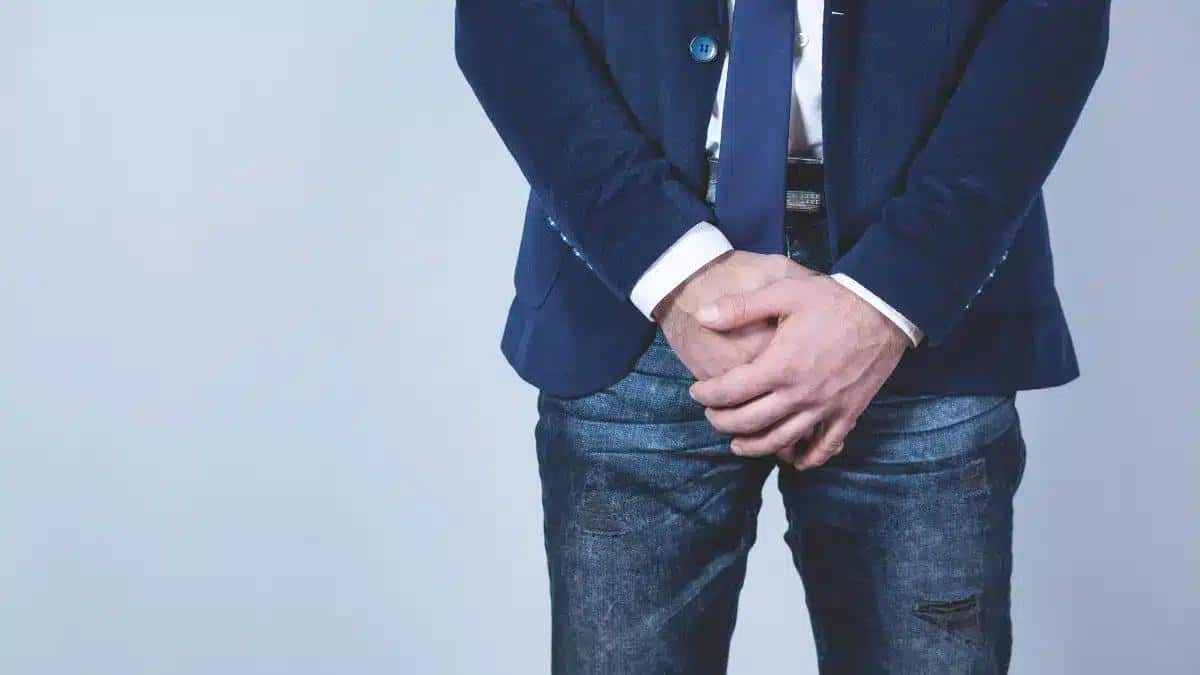Ejaculation is a natural process by which semen is released from the penis during sexual stimulation and orgasm.
A man experiences ejaculation and orgasm simultaneously.
But, it is also possible to have ejaculation without orgasm or vice versa.
Ejaculation plays a crucial role in releasing sperm, which is necessary for fertilizing an egg and initiating pregnancy.
It also brings pleasure and satisfaction to sexual experiences.
Ejaculation has both positive and negative effects on the body.
But, the main question among individuals is- “What happens if a man stops ejaculating?”.
Let us explore the answer to this question.
What happens if a man stops ejaculating: Effects on the body
When a man stops ejaculating, either voluntarily or due to certain circumstances, several physiological and psychological changes may occur.
Not ejaculating can also be a sign of ejaculation problems like Delayed Ejaculation and Retrograde Ejaculation.
For a short duration, there may be several benefits of not ejaculating. But in the long run, it has various effects on the body.
These effects include reduced sperm production, increased sexual tension, prostate health considerations, and psychological impact.
The effects of not ejaculating can vary among individuals and depend on overall health, age, and individual physiology.
Let us explore these effects in detail:
Prostate health considerations
Ejaculation helps to maintain prostate health by clearing out fluids and potentially reducing the risk of developing certain prostate conditions.
If a man stops ejaculating, there may be a higher risk of prostate-related issues, such as inflammation or forming prostate stones.
A study also states that men who ejaculated frequently were less likely to have Benign Prostatic Hyperplasia (BPH) symptoms.
Read: What Is The Most Common Dry Ejaculation Cause?
Increased sexual tension
Without regular ejaculation, sexual tension can build up over time.
This can lead to increased sexual desire and a heightened sense of arousal.
Some individuals may find this buildup of sexual tension pleasurable, while others may experience frustration or discomfort.
Psychological impact
Ejaculation is often associated with feelings of pleasure, release, and satisfaction.
When a man stops ejaculating, it can have psychological effects, such as stress, increased sexual frustration, changes in mood, or shifts in overall sexual well-being.
Research also states that stress can reduce male fertility.
What affects the frequency of ejaculation?
 Source: atlasstudio
Source: atlasstudioThe frequency of ejaculation is a topic that raises curiosity and questions among men regarding their sexual health.
It refers to how often a person engages in the act of ejaculating semen, either through sexual activity or masturbation.
The frequency of ejaculation can vary from person to person.
It depends on factors such as age, overall health, sexual preferences, and relationship status.
According to an article, the sex drive in a man decreases naturally with age.
Psychological factors, including stress, depression, and more, can impact sexual desire.
This decrease in sex drive can lead to less frequent ejaculation.
A study shows that the use of excessive alcohol is the cause of sexual dysfunction in men.
Key Takeaways
Male ejaculation is the release of semen from the penis during sexual stimulation.
Ejaculation is a natural part of sexual experiences that brings satisfaction and pleasure.
But, the main question among individuals is- What happens if a man stops ejaculating?
When a man stops ejaculating, several physiological and psychological changes may occur.
Not ejaculating for a long time can result in increased sexual tension, prostate health considerations, and psychological impact.
Although, no studies have shown definitive answers on the frequency of ejaculation.
The frequency of ejaculation refers to how often a person engages in the act of ejaculating semen.
It depends on factors such as age, overall health, sexual preferences, and relationship status.
Frequently Asked Questions
Is ejaculating good for the heart?
Ejaculation increases heart rate and accelerates the rhythm of the lungs.
This leads to an increase in blood flow throughout the blood vessels. This can have potential benefits in reducing the risk of cardiovascular diseases.
When does a man stop ejaculating?
There is no particular age at which a man should stop ejaculating. Aging can reduce a man’s libido, which is one of the reasons behind less ejaculation.
Can a man have a problem with ejaculation?
Yes, some people may have concerns about ejaculation problems. Psychological, physical, and lifestyle factors may cause these problems.
Consult a doctor to understand the issue better and receive personalized care.
When trying to conceive, how often should a man ejaculate?
It is generally recommended for couples to have regular sexual intercourse, around two to three times per week.
This ensures that sperm are consistently present in the reproductive system.
It increases the chances of fertilization during the woman’s fertile window.
What happens if a man goes a year without ejaculating?
Typically, abstaining from ejaculation for a year does not result in significant physical harm for a man.
However, it can lead to sexual frustration and may contribute to various psychological issues.
When referencing outside resources, GoodrxMedicine always provides full citations. To learn more about the measures we use to maintain the quality of our content, please review our Content Information Policy.











